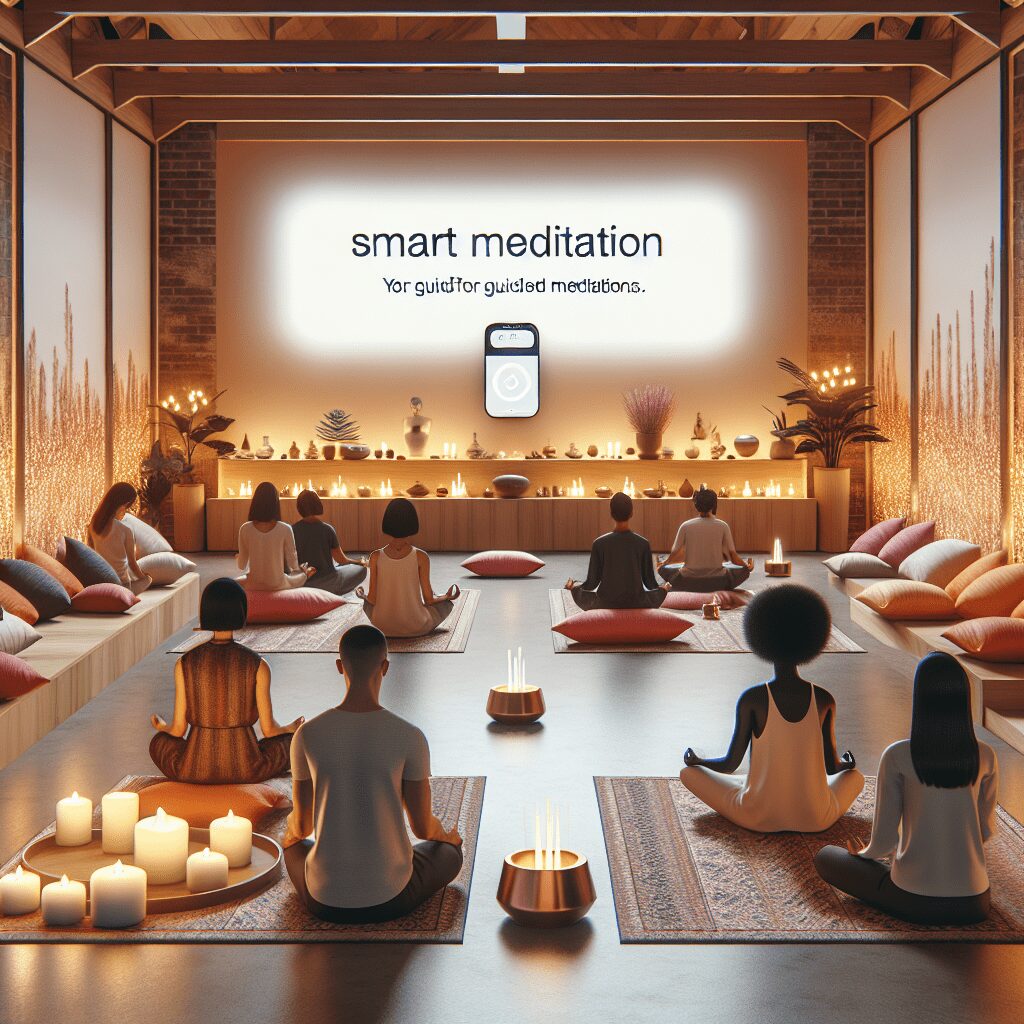
Prioritize your mental well-being daily. Enhance your life by nurturing your mental health with the Smart Meditation app. Break free from stress, alleviate anxiety, and enhance your sleep quality starting today.
Can Anxiety Cause Hallucinations?
Unraveling the Mind’s Mysteries: Can Anxiety Trigger Hallucinations?
In the twisty corridors of human psychology, where the mind plays tricks and reality often blurs, a question emerges, cloaked in both curiosity and concern: Can anxiety cause hallucinations? Delving into this inquiry isn’t just about satisfying a fleeting curiosity—it’s about unveiling a lesser-known facet of mental health that could reshape perceptions and offer solace to those living in the shadows of their minds.
The Mind’s Mirage: Anxiety and Its Hallucinatory Fallout
Anxiety, that familiar beast, known to many, yet understood by few, can indeed take one on a journey through uncharted psychological territories. When we talk about anxiety, we’re not merely discussing the butterflies in the stomach before a big presentation or the jittery legs before a first date. No, we’re venturing into the realm of severe anxiety disorders—where the stakes are higher, and the symptoms can wander into the extraordinary.
Now, onto the meat of the matter: Can anxiety catapult someone into experiencing hallucinations? Buckle up, for the answer isn’t as straightforward as one might hope, but it’s a resounding “Yes, but with a catch.”
Hallucinations, for the uninitiated, refer to the phenomena where an individual perceives something—a sound, a vision, a sensation—that doesn’t exist outside their mind. These are not the fabrications of tales or the whispers of folklore; they are vivid, and to the person experiencing them, undeniably real.
The Science Speaks Volumes
Emerging evidence suggests that severe anxiety, especially when it reaches the intensity found in disorders such as Generalized Anxiety Disorder (GAD), panic disorder, or Post-Traumatic Stress Disorder (PTSD), can indeed be a puppeteer pulling the strings behind the curtain, orchestrating these uncanny experiences. The mind, under the siege of unrelenting stress and anxiety, might slip into these hallucinatory episodes as a misplaced coping mechanism or an overload response.
Here’s the kicker, though: while anxiety can induce hallucinations, it’s a bit of a rare phenomenon. Typically, hallucinations are more often associated with severe mental illnesses, like schizophrenia or severe bipolar disorder. However, when anxiety decides to pair up with an overstimulated, stressed-out brain, the lines between perception and reality can blur.
Navigating the Mindfield: What To Do?
So, what’s the game plan if anxiety has led someone down this rabbit hole? First and foremost, recognizing the power of professional help is crucial. Self-diagnosis is about as effective as trying to navigate a labyrinth blindfolded. A mental health professional can offer not just a diagnosis but a roadmap out of the hallucinatory maze.
- Seeking Professional Help: This is step numero uno. A psychologist or psychiatrist can assess, diagnose, and treat the underlying causes of both the anxiety and the associated hallucinations.
- Exploring Therapy Options: Cognitive Behavioral Therapy (CBT), among others, can be a powerful tool in rewriting the narratives that fuel anxiety.
- Considering Medication: In some cases, medication might be recommended to manage the symptoms and provide relief.
In the dynamic landscape of mental health, where discoveries are made, and paradigms shift, understanding the link between anxiety and hallucinations is just one piece of the puzzle. For those wrestling with this perplexing symptom, know that you’re not alone, and with the right guidance, the path forward can lead to both healing and understanding.
Remember, the mind, in its complexity, holds mysteries yet to be unraveled, and what might seem like a descent into the abyss can actually be the first step toward reclaiming your mental sovereignty.





